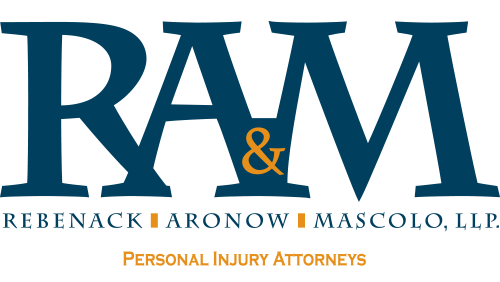People with sleep apnea have a condition that causes their breathing to constantly stop and start again throughout the night. Even though they may get a good night’s sleep, they will still wake up feeling tired in the morning. One of the main types of sleep apnea is known as “obstructive sleep apnea,” and it is very common.
What Happens During Sleep Apnea?
With obstructive sleep apnea, a person’s airways become blocked as their muscles relax. Their breathing may stop, but it starts again when they either snort or begin to choke.
The reason that people feel as if they didn’t sleep well even though they spent eight hours in bed is that their sleep is being interrupted throughout the night. This is one reason that the medical community states that people with sleep apnea have a higher risk of being involved in a traffic accident.
Prevalence of Sleep Apnea
Sleep apnea occurs in approximately 4% of the U.S. population, but one segment of this population is diagnosed with this condition more than others. Truck drivers constitute 35% of people with sleep apnea, and this figure is very frightening.
The Main Types of Sleep Apnea
As was mentioned above, one of the main types of sleep apnea is “obstructive sleep apnea,” but there are two more. Central sleep apnea occurs when the brain isn’t sending the appropriate signals to muscles that are in control of breathing. “Complex sleep apnea syndrome” is a condition that consists of both obstructive sleep apnea and central sleep apnea.
The Risk of Accidents With Sleep Apnea
A study found that 28 percent of truck drivers currently have sleep apnea that falls within the spectrum of being mild to severe, so their sleep is being interrupted several times throughout the night. As a result, these drivers feel tired throughout the day, so they are not prepared to be on the road for several hours at a time.
Sleep apnea is also a health risk for these drivers. The brain is being deprived of oxygen every time that the person’s breathing stops. A person’s breathing stops for 5 to 10 seconds several times throughout the night with sleep apnea, so the brain is deprived of oxygen several times. This also causes hypertension and heart disease.
The Importance of Sleep

Sleep apnea is the reason that truck drivers may not obtain as much rapid eye movement, or REM, sleep as they need. It takes approximately 90 minutes for people to fall into REM sleep, but when they are constantly being awakened during the night, they miss out on this particularly restorative sleep.
When you are deprived of sleep, it is harder to concentrate on the tasks you have to perform throughout the day. Most importantly for driving, a lack of sleep prevents you from reacting quickly when you need to avoid a collision.
Truck Drivers and Obstructive Sleep Apnea
Although truck drivers may be in bed for 10 hours every night, if they have obstructive sleep apnea, they are actually getting very little sleep. Constantly waking up during the night and having their breathing interrupted causes them to feel drowsy during the day. Drowsiness increases the possibility of accidents by 250 percent when you compare these drivers to well-rested motorists.
The Signs of Sleep Apnea
Snoring may be a sign of sleep apnea, but not everyone exhibits this symptom. If people feel tired and they don’t know why, sleep apnea could be the problem. The fact that people with sleep apnea have their sleep interrupted throughout the night causes them to be moody, so if they are experiencing mood swings, sleep apnea may be the issue.
What happens after affected individuals wake up from a night of interrupted sleep may also point toward sleep apnea. For example, many people with sleep apnea breathe with their mouths open, so when they wake up in the morning, they find that their mouths are dry. Because the body can’t do as good a job of removing the carbon dioxide from their blood throughout the night, they may also wake up with a headache.
The Symptoms of Sleep Apnea
People with sleep apnea may experience the following symptoms.
- The need to urinate frequently throughout the night
- Difficulties concentrating
- Sleep disturbances
- Irritability and/or depression
- Drowsiness throughout the day
- Low libido
- Gasping for air throughout the night
- Headache and nausea upon awakening
- Loud snoring
- Troubles concentrating
- Troubles remaining asleep
- Interrupted sleep
- Poor memory
Sleep Apnea and the Risk of Diabetes and Heart Disease
Many people diagnosed with sleep apnea are obese, and obesity is a risk factor for heart attack, stroke and sleep apnea. The contrast is also true because research found that people diagnosed with sleep apnea have an increased risk of diabetes whether they are obese or not. Researchers believe that sleep apnea increases blood sugar levels.
How Does Sleep Apnea Affect Driving?
Sleep apnea keeps you from sleeping well at night, and this also affects how alert you will be the next day. If sleep apnea is not treated, people can have difficulties focusing on the road ahead of them, reacting when there is danger ahead and not falling asleep at the wheel. Studies demonstrate that if your sleep apnea isn’t treated, you have an increased risk of being involved in a collision and needing assistance from an experienced trucking accident lawyer.
Driving With Sleep Apnea
It’s still possible for people to drive even though they have sleep apnea, but the Federal Motor Carrier Safety Administration (FMCSA) prohibits anyone with a history of sleep apnea from operating a commercial vehicle in interstate commerce. If drivers with sleep apnea receive treatment for the condition, they can become medically qualified to drive. The rules for driving in intrastate commerce are different for every state.
What You Can Expect From an Employer
Motor carriers should not allow people with sleep apnea that isn’t being treated to operate a commercial motor vehicle. Drivers must be under the care of a physician, and they must follow their doctors’ treatments before they can be permitted to drive. People experiencing sleep apnea that is moderate to severe will be restricted from driving until they receive adequate treatment.
If you or a loved one has been in a collision with a commercial truck, you will want to meet with a trucking accident lawyer right away. An attorney will decide which party must be held responsible for your injuries. The truck’s driver might be at fault, but the truck driver’s employer may also deserve a portion of the blame.
Contact the New Jersey attorneys at Rebenack, Aronow and Mascolo so that we can get to work on your case today. We have offices in New Brunswick, Somerville and Freehold. You can reach us at (732) 394-1549.


